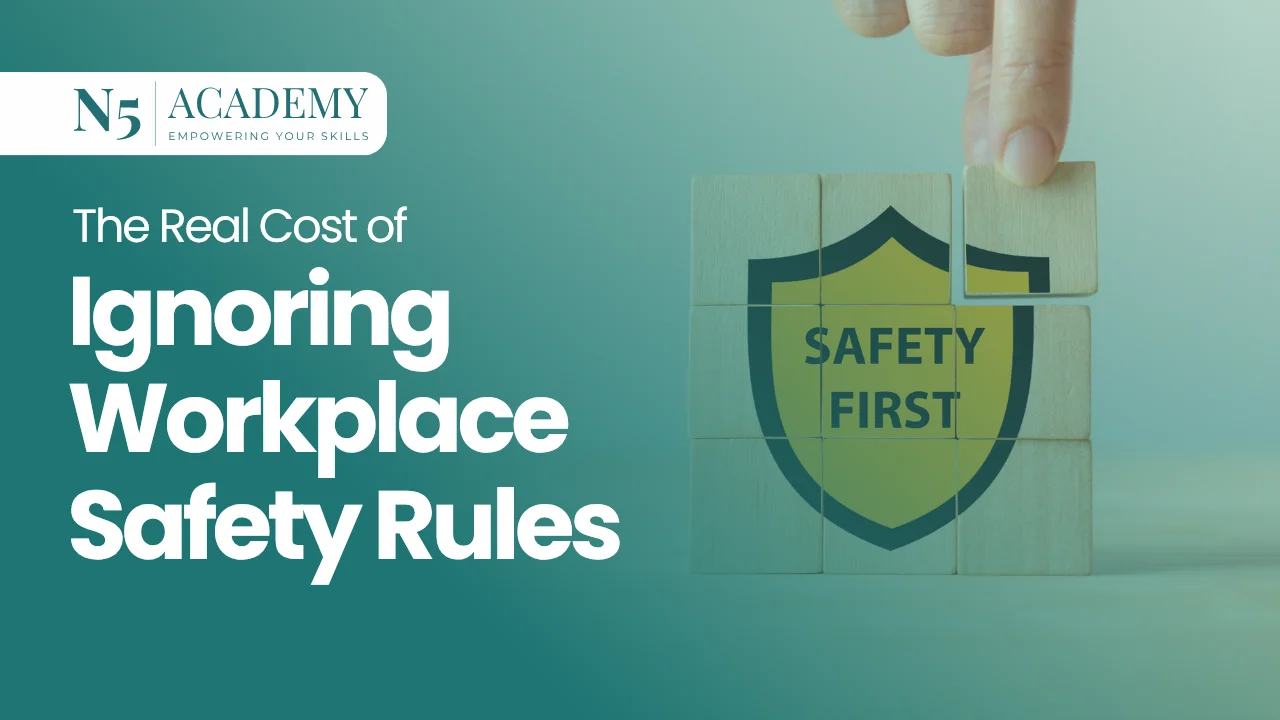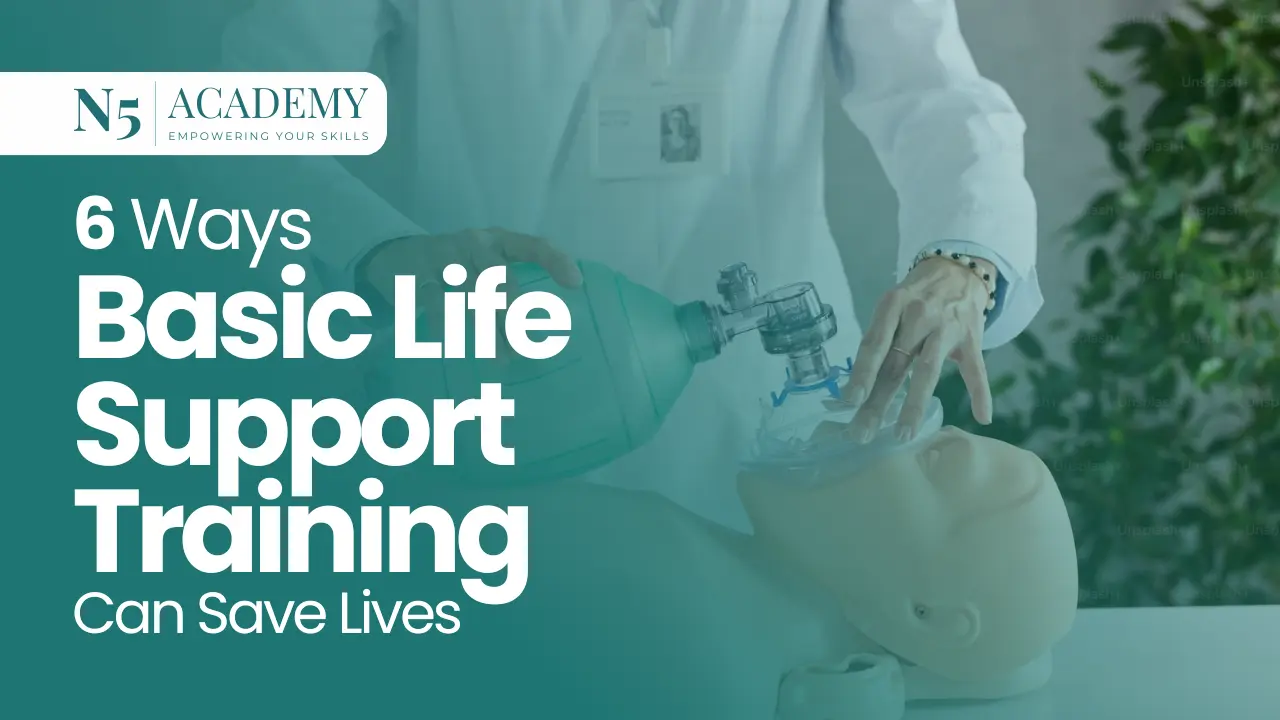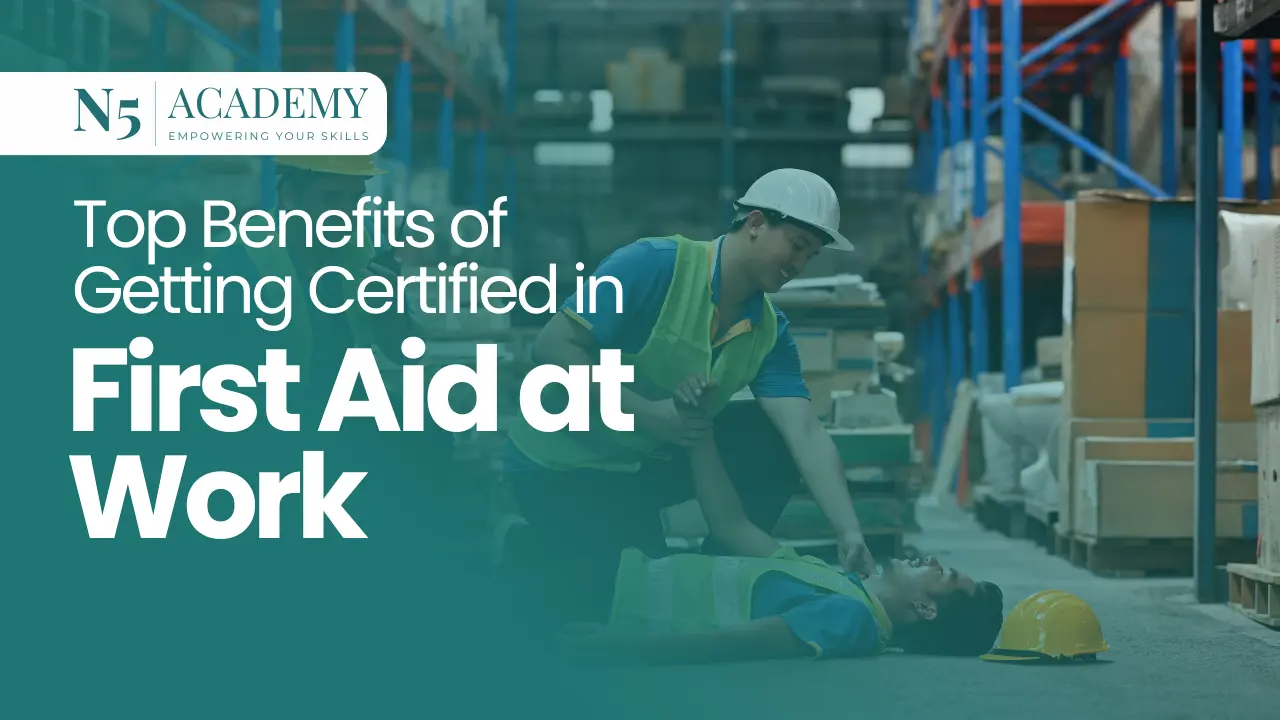In the rush to meet goals and complete orders, it’s easy to ignore safety signs or skip risk assessments. But what happens when we overlook workplace safety? The consequences can be serious.
Neglecting safety can lead to injured workers, damaged reputations, and higher insurance costs. This isn’t just a moral issue; it’s also a financial one. Everyone – employees, managers, and business owners – needs to understand the true costs of ignoring safety rules.
Let’s explore the broad impact of poor safety practices and see how focusing on health and safety can transform any business.
The Hidden Price Tag of Workplace Accidents
We often think of accidents as rare events, but they happen more often than we realise. The Health and Safety Executive (HSE) reports that UK workplaces had over 60,000 non-fatal injuries in one year. These accidents can be costly for the NHS, employers, and the economy.
Workplace accidents can lead to:
- Time off work (sick pay and hiring temporary staff)
- Damage to equipment
- Legal fees and fines
- Compensation claims
- Higher insurance premiums
- Lower productivity
- Temporary or permanent shutdowns
When you add these costs together, even a small accident can cost a business thousands. A serious injury could cost hundreds of thousands or more. For small businesses, this could mean closure and loss of customer trust in just days.
Many indirect costs, like lower output and extra hiring, are often ignored but can quietly drain your business.
Safety Negligence: More Than Just a Mistake
Safety negligence isn’t always obvious. It can be as simple as missing a briefing, not replacing a worn ladder, or postponing a fire drill. These small mistakes can lead to serious incidents that impact everyone.
Negligence can result in:
- Criminal charges
- Civil lawsuits and fines
- Damage to reputation
- Loss of contracts or customers
- Erosion of staff trust and loyalty
Employers must protect their staff under the Health and Safety at Work Act. Ignorance or budget cuts won’t be accepted as excuses in court. When managers ignore safety rules, they break the law and lose credibility.
Even well-intentioned supervisors who miss unsafe conditions can be held responsible. This can create a chain reaction that leads to serious consequences.
The Human Toll: Injuries, Trauma, and Long-Term Consequences
Workplace injuries cause more than just financial loss; they leave lasting personal scars. A fall from a ladder can lead to months of physical therapy. Exposure to chemicals can cause lifelong breathing problems. Burns, fractures, and mental trauma are just the beginning.
For the employee, the costs include:
- Lost wages and future income
- Emotional trauma and mental health issues
- Disability or limited movement
- Strain on family and relationships
- Lower quality of life
The gap in employee protection becomes clear when companies neglect safety. An unsafe workplace risks lives and can change them forever. Employees want to feel safe at work, and injuries can have wide-reaching effects beyond the job.
Families suffer, communities feel the impact, and injured workers may need long-term medical care, counselling, and legal help.
A Culture of Complacency: How It Starts and Spreads
One missed safety meeting or an overlooked hazard can lead to a careless culture. When leaders don’t prioritise safety, the team won’t either. Soon, risky behaviours become normal and unsafe practices are ignored.
Signs of complacency include:
- Employees not wearing personal protective equipment (PPE)
- Near-miss reports being ignored
- Risk assessments that are outdated or missing
- No refresher training or follow-ups
- Safety posters and procedures are being ignored
These habits can create a situation where accidents are likely to occur. In contrast, a proactive safety culture saves money, lives, and reputations. Managers who set a good example and talk to staff about safety foster accountability.
The Ripple Effect on Productivity and Morale
Injuries and near misses affect more than just the person involved. They hurt team confidence, lower productivity, and damage morale. Staff may feel scared or resentful. Trust in leadership fades quickly if safety is not a priority.
Low morale leads to:
- Higher staff turnover
- Less engagement in work
- Difficulty attracting new talent
- More absenteeism
On the other hand, companies that focus on safety gain employee loyalty and motivation. Workers feel valued and protected, which boosts productivity and commitment to the organisation’s success.
Additionally, open communication about safety strengthens teamwork. When employees can speak up about risks without fear, everyone benefits.
Insurance Premiums Don’t Lie
Have you ever wondered why some companies pay high insurance costs while others get discounts? Insurers closely monitor safety records. A clean record shows you’re low-risk, while frequent accidents raise red flags.
Businesses with many accidents can expect:
- Higher policy costs
- Fewer coverage options
- Stricter inspections and audits
- Slower claim processing
Every preventable injury signals to insurers that your workplace is risky. On the other hand, good safety management can lower premiums and even lead to rebates. Investing in training, audits, and new equipment pays off.
Training: Your First Line of Defence
To protect your team, reputation, and finances, training is crucial. It’s not just about checking a box; it’s about building confident employees who know how to handle emergencies and prevent them.
At N5 Academy, our first aid courses teach more than just CPR. They foster a culture of responsibility, readiness, and calmness under pressure.
We also offer:
- Fire safety training
- Pediatric first aid courses
- Traffic Marshal Certification
Every trained employee contributes to a safer workplace. Having trained responders can mean the difference between saving a life and facing a tragedy.
Legal Ramifications: What the Law Says About Safety Failures
In the UK, not following health and safety rules is dangerous and illegal. The HSE can take legal action against individuals or businesses, leading to serious consequences.
These consequences include:
- Unlimited fines
- Imprisonment
- Disqualification of directors
- Forced closure of the business
- Long-lasting damage to reputation
Recently, courts have given heavy penalties to companies that did not protect their employees. Following these rules is essential and shows how much a business cares about its workers.
Prevention is always better than a court date. Investing in ongoing training, record-keeping, and routine assessments can keep businesses on the right side of the law.
Real-Life Examples: When Safety Went Wrong
Let’s look at some sobering case studies:
Case 1: The Unsecured Scaffold
A small construction company in Manchester did not check its scaffolding. A worker fell and hurt his spine. The company was fined £200,000 and closed within six months. The owner also faced legal issues.
Case 2: No Fire Training
A Birmingham office building lacked a fire marshal and an evacuation plan. A small fire caused chaos, injuries, and a £70,000 fine for the management. The event also caused ongoing business disruption and negative publicity.
Case 3: Faulty Electrical Equipment
A neglected electrical device in a warehouse near Leeds caught fire, destroying all the goods inside. Investigators discovered the device hadn’t been tested for safety in years. As a result, the owner faced fines and lost several supplier contracts.
These incidents show that workplace accidents lead to losses beyond money, affecting dignity, trust, and even human lives.
Proactive Steps to Prevent Safety Negligence
Good news: Safety doesn’t have to cost a lot. Here are simple ways to lower risks and promote safety:
- Do regular risk assessments.
- Provide ongoing safety training.
- Keep communication open.
- Allow staff to report near-misses without fear of punishment.
- Invest in clear signs and dependable equipment.
- Hold monthly safety audits and drills.
- Use staff feedback to improve safety.
At N5 Academy, we simplify compliance with expert-led training, including our first aid at work course in Romford. A small investment now can save lives and protect your reputation in the future.
Make Safety Part of Your Culture
Safety should be part of your workplace culture, not just a checklist. Everyone, from directors to part-timers, plays a role in keeping the workplace safe.
When employees feel safe, they work better, stay longer, and create a positive environment. This is not only ethical but also good for business. To build a culture of accountability, be proactive, listen to staff, and keep improving systems.
Recognise teams that report hazards and reward departments with great safety records. Include safety achievements in performance reviews. These simple changes can make a big difference.
Safety Isn’t Optional: It’s a Lifeline
Ignoring safety rules can lead to more than just financial loss; it can hurt people and their families. It can damage futures and trust in leaders. Before you skip a safety drill or cut the PPE budget, remember: it’s cheaper to prevent problems than to regret them later.
N5 Academy is ready to help, whether you need basic training or advanced compliance solutions. We offer:
- First Aid at Work Course
- Emergency First Aid at Work Course
- Fire Marshal Training
- Paediatric First Aid Course
- Traffic Marshal Course
Book your session today and help us create a safer UK, one workplace at a time.






